Loving a Madoff
Author Laurie Sandell recounts her relationship with Bernie Madoff's son Andrew and his fiance Catherine Hooper in the aftermath of the biggest financial fraud ever perpetrated.
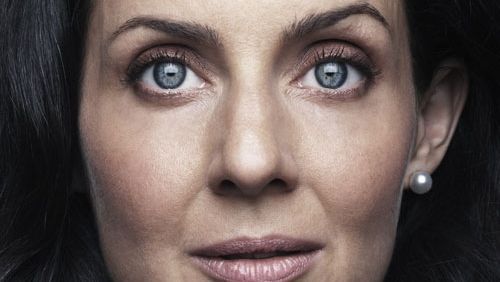
When news broke that Bernie Madoff, broker to some of the world's wealthiest investors, had swindled them out of billions, the fallout was epic. Businesses were destroyed, entire fortunes wiped out. For the tight-knit Madoff family, the sins of the father would prove just as costly, plunging wife Ruth into a peripatetic life of exile and driving elder son Mark to suicide. Watching the crisis unfold firsthand was Catherine Hooper, the fiancée of Bernie's younger son, Andrew. In an unlikely turn, author Laurie Sandell befriended the couple — even hosted Ruth in her apartment for a week. Sandell's relationship with the Madoffs in the aftermath of the biggest financial fraud ever perpetrated gave her unprecedented access, which she mined for her new book, Truth and Consequences. In this MC exclusive, she describes how she came to know the surviving members of this shattered family, and how they answered the most troubling question of all: What exactly did they know?
September 2009 was a surreal time in my life: I had just published a book about my father called The Impostor's Daughter, about how I'd come to learn that everything he had ever told my family was a lie. He'd faked his university credentials, lied about his service in Vietnam, and taken credit cards out in my name; he'd also stolen hundreds of thousands of dollars from a business associate. It was odd enough to have my life discussed in book reviews, to have complete strangers thank me for telling my story — or vilify me for "selling my father up the river." But nothing could have prepared me for the rabbit hole I was about to tumble down into.
I had just finished giving a book reading at a trendy pub in New York City, and was busy signing books, when two women approached and asked if they could speak with me. One, a slim brunette, introduced herself as Catherine Hooper, saying my reading had "really hit home." Her name didn't ring a bell — until she mentioned she was engaged to Andrew Madoff, the then 42-year-old son of Bernie Madoff, who had recently been outed as the biggest white-collar criminal of all time. Then I practically did a spit-take. The Madoffs were in the news every day, and I was following every twist in the sordid tale. I started chatting with Catherine, and she asked if I'd like to have dinner with her and Andrew at their apartment. I immediately said yes.
Catherine and Andrew were looking to meet new people, as many of Andrew's friends were muzzled by lawyers in the wake of the scandal. I had a different motive. As a journalist, I wanted to meet Andrew out of pure curiosity. What reporter wouldn't grab that opportunity? I assumed Andrew was involved in his father's fraud, just like the rest of the world did. He had worked at Bernie's investment firm, Bernard L. Madoff Investment Securities, for 20 years. I wanted to see what he was like.
The night I arrived at the couple's apartment on the Upper East Side of Manhattan, I had no idea what I would find. A cold-eyed sociopath, perhaps? Catherine, then 36, greeted me at the door, smiling as she ushered me in. Their apartment was sparsely furnished, with a few couches and chairs scattered around the living room. They had just moved in two days before Bernie's confession, putting the kibosh on plans to hire a decorator. Andrew's assets had been frozen, I later learned, and he wasn't about to make any showy expenditures. (They remain frozen today, as he is still in the midst of negotiating a settlement.)
Andrew emerged from his office and shook my hand. He was friendly and approachable, although not particularly talkative. He and Catherine had ordered Vietnamese food, which they served on paper plates. During dinner, Andrew started to loosen up. He asked me about my book — in particular, what the fallout had been. Was my father speaking to me? (No.) Had I found peace through the experience of writing about what had happened? (Yes, sort of.) What had I done with the pictures of my father — had I torn them up? After that question, he led me into the hallway and showed me a photo hanging on the wall. In it, Andrew stands on a dock, hoisting a huge fish; in the background, Bernie smiles proudly from a yacht. Andrew appeared conflicted about this strange new territory — a limbo between warm memory and cold reality. I knew it all too well.
A few days later, Catherine asked if I could recommend a good book agent. She was thinking about writing a book on emergency preparedness. She had just launched her company, Black Umbrella, which would teach people how to prepare for emergencies, such as identity theft or earthquakes. I forwarded the note to my literary agent. "Just so you know, she's engaged to Andrew Madoff," I wrote. My agent, as I'd suspected, wasn't interested in a book about emergency preparedness. Maybe there was a book in her other story, she responded — that is, if the family would be willing to tell the whole story.
Stay In The Know
Get exclusive access to fashion and beauty trends, hot-off-the-press celebrity news, and more.
Andrew, who'd spent the last two years enduring the world's scorn and suspicion, was more than ready to participate. Desperate to clear his name, he was living in a legal limbo, unable to launch a new business in his name, buy a house, or marry the woman he loved. His mother, Ruth, was less eager; she didn't trust the press, and was, by nature, a private person. "I'm the most boring person in the world," she later told me. But soon, she, too, came around. Andrew was her only remaining immediate family member, and if the project was important to him, she was willing to offer her support. The family never formally approached me to write the book. Catherine and I sat down with my agent to discuss what kind of book they were open to participating in, and by the time we were done with our meeting, I was on board as the writer. I would talk to Catherine, Andrew, and Ruth — but not Bernie, who was in jail and no longer on speaking terms with Andrew. Also, I'd read the interviews Bernie had given from behind bars. They were grandiose, narcissistic, and full of lies. Now it was his family's turn to tell their story.
Professionally speaking, I was excited about the opportunity, but there was a hitch for me personally: I didn't know what I really thought about Catherine and Andrew yet. My conversations with them, while warm, weren't particularly deep. They'd shared some details about the scandal, but I'd never once posed to Andrew the question I most wanted to ask: You worked with your father for two decades — how could you not know?
In March, I began the book, entering the most extraordinary six months of my life. I started by learning Catherine's life story: how she grew up poor in upstate New York; how she fell in love with fly-fishing and became part-owner of a fly shop; how she had a daughter, Sophie, from a previous relationship; and how she met Andrew through her fly-fishing store. She shared details on everything from her initial misgivings about Andrew ("too geeky") to her most personal interactions with Bernie (he grabbed her butt and said her boobs were too small on one yacht outing). The press had labeled her a gold digger, saying that Andrew had left his wife of 16 years for her. Andrew told a different story: that his marriage was essentially over by the time he and Catherine got together. When news of the scandal broke, Catherine told me she didn't once doubt Andrew's innocence. Friends offered a helping hand had she wanted to leave, but she never considered it, though she later wondered if she'd made the right choice. "As the story grew, I saw the impact it was having on my ability to work and be judged for who I am, even though I was in no way connected to what Bernie did," Catherine says. "But in the end, being with the person I love was such a worthwhile trade-off that it didn't occur to me to make a different choice."
My first interviews with Andrew were difficult. We sat down at his apartment in New York a mere three months after his older brother's suicide. At every mention of Mark's name, he choked up, unable to go on. Shy and quiet by nature, Andrew was more composed about other topics, so I asked him about his work. I was hard on him, asking all the questions I felt the public wanted to know. There is too much to go into here, but his explanation of his innocence was essentially this: Andrew first worked at his father's firm in 1988, when he was in high school, as an intern in the market-making division. (When individuals want to buy, for example, 100 shares of Apple stock, they go to their broker, like Schwab or Fidelity, to do so. When those companies receive that order to buy those shares, they send it to a market maker, who executes the order.) When Andrew graduated from college, he re-entered the market-making division, working on the trading floor with Mark. There was another side to the business — an asset-management side — that Bernie ran on a separate floor. There were separate personnel, sepa-rate computer systems, and almost no interaction between the businesses at all, with the exception of the office Christmas party and the company weekend in Montauk, New York.
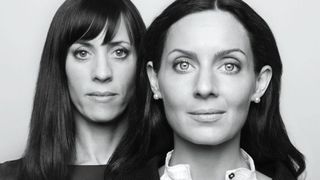
Andrew says his father didn't try to bring him into his asset-management business. At first, Andrew didn't think that was so strange: He was young and still learning the business. But as Andrew climbed the corporate ladder, Bernie still refused to share information about his piece of the firm with his sons. "I gave you guys the trading operation!" he would shout, according to Andrew. "This is my business, and it's gonna die when I do." Andrew worshipped — and, at times, feared — his father, he told me. When Bernie yelled, Andrew backed down.
There was no succession plan in place for Bernie's firm. In the event of Bernie's death, the entire asset-management business was to close. Andrew and his brother would have to rely on their father's lieutenants — such as Frank DiPascali, who pleaded guilty to being a key facilitator of the scheme — to wind down the business. Whatever money came out of it — and Andrew had no idea how much there was — would be in the hands of people Andrew didn't know very well. This was a point of chronic frustration, Andrew told me. Whenever he tried to discuss this with his father, Bernie would clam up.
Then there was his father's public profile. Bernie had been chairman of the Nasdaq stock exchange, and some of the most sophisticated investors in the world had handed over millions — possibly billions — of dollars for him to manage. Andrew, too, had money invested with his father; the trades listed on the sheet that showed his returns looked "completely plausible," he told me. Why would he question the man who'd taught him everything he knew? He thought Bernie must have been a genius. When Andrew learned of his father's historic fraud — in a stunning conversation at his parents' penthouse apartment — he says, he felt "sickened."
Andrew answered every question thoroughly and with a striking amount of detail. His manner and responses felt like those of an innocent man. But what really convinced me of Andrew's innocence was the fact that he was never indicted. In the wake of the news, the government went over every scrap of documentation in Andrew's and Mark's offices: every computer file, every paper file. Diana Henriques, a financial reporter for The New York Times, also concluded that the brothers were not involved after researching the case for her book about Bernie, The Wizard of Lies. She came to the same conclusion about Ruth. Today, Andrew continues to cooperate with all the agencies involved with the case. But the case is so large and complex, involving so many tangled legalities, it will likely drag on for years. That is something Andrew will have to live with; he accepts that.
I first met Ruth Madoff in Seaside, Florida, in March, when Andrew and Catherine were visiting, along with Andrew's then 15-year-old daughter, Emily. Ruth had not spoken to the press, so I had no idea what to expect. I'd seen photos of her in the news: She looked attractive, remote, even snobby. The woman I met was nothing of the kind. She spoke with a thick Queens accent and kvelled — Yiddish for "rejoiced" — over any children who crossed her path. She wore a simple white shirt, drawstring pants, and flip-flops. We did yoga together; she laughed as she "messed up" the poses. Just three months past her son's death, she was emotionally fragile; almost any mention of her former life triggered a torrent of tears. If anything, she reminded me of my own Jewish grandmother: warm and emotional, if a little dotty.
In April, Ruth met with me in Los Angeles to be officially interviewed for the book. Because of her financial situation, which she cannot discuss due to ongoing settlement negotiations, she stayed with me at a two-bedroom apartment I was subletting while working on the book. Although she'd spent the past 20 years living in a Manhattan penthouse, she was thrilled with the much smaller digs, saying, "I could live here!" as soon as she walked in. For the next five nights, we sat outside on my balcony, looking out over a small pool as I interviewed her. I had her sleep in the master bedroom — as I would any guest — and stocked up on food I thought she'd like: salads, cold cuts, and vegetables. I wondered if it would be awkward to have her staying in my home or if she'd flee after a difficult interviewing session.
My concerns were unfounded. Over the next week, she seemed to enjoy the little things, like walking up the street to Trader Joe's to buy groceries. She stocked my refrigerator with cheap wine, which she liked to drink at night. In the mornings, she hiked up Runyon Canyon, a paved, uphill path popular with dog owners, coming back to my apartment breathless with stories about the "people-watching." Then she would sit outside on the balcony, smoking one of the five cigarettes she allowed herself per day and eating carrot sticks or salami with her fingers. At night, I took her to local restaurants, where she raved about the dishes. She said she liked the divey, hole-in-the-wall restaurants with ethnic food the best. No one realized who she was. Every day she would say, "I love it! No one knows who I am!"
She was right. I took her to the Getty museum, and we strolled through the lush gardens completely incognito. We went to see a movie at the ArcLight theater; all eyes remained on the screen. For a woman who'd just lost her son, whose husband was in prison for the rest of his life, these simple activities were clearly a salve. Time and again, she told me how lonely she'd been over the past two years, and how nice it was to spend time with a person who wasn't part of her legal team.
Because of the choices Ruth made in the immediate wake of her husband's confession — namely, to stay by his side — she had suffered tremendous consequences. Both of her sons had stopped speaking to her. Every single one of her friends — almost all of whom had been fully invested with her husband — had abandoned her. Forced to leave her Manhattan penthouse when it was seized by the government, she found herself couch-surfing at the age of 70. The media ran story after story hinting at her involvement in her husband's scheme. People screamed at her on the street. She received death threats and cruel notes, she told me, penned on beautiful stationery. Ruth, who'd met Bernie when she was 13 years old in Queens, New York, and had married him at the age of 18, had no idea that it was even an option to leave her husband of 50 years. She had never lived alone. Bewildered, terrified, and numb, she did what she'd done her whole life: She clung to Bernie.
It was only after Mark's suicide that Andrew started speaking to his mother again. But their relationship was tenuous at best. Ruth still couldn't bring herself to divorce the man she'd loved for so long. That seemed to throw even more suspicion upon Andrew, and he couldn't bring himself to forgive her for that action. He himself has not spoken to his father since the day of the confession. I came onto the scene as Andrew and Ruth were attempting to broker a fragile peace, and I witnessed some of the most intimate conversations I have ever seen between a mother and son.
When all of the interviews were finished and I started to write the book, I learned what it actually meant to step into a truly controversial story. One friend asked if I was prepared to have the whole world hate me. Another asked to have his name removed from my acknowledgments page. I holed up at an artists colony in the Adirondacks to write the first draft, and when I was finished, I held in my hands a story of betrayal, family dysfunction, suicide, and the price of loyalty. But above all, it was a story about family. What this family had gone through felt strangely familiar to me.
Catherine Hooper got a lot more than she bargained for when she fell in love with Andrew Madoff, but she wouldn't change her situation, she says, because she got to meet her soul mate. Today, she is the glue that holds the family together. She runs her business with Andrew. (Because of Andrew's legal issues, the business is entirely in Catherine's name. "I trust her with my life," he says. "I have to.") They share an office and work side by side, dealing with employees, building an infrastructure, and growing their clientele. At night, tired of talking shop, they "meet" in their kitchen to cook dinner and reconnect emotionally. They would love to be married someday, but until Andrew's situation is sorted out legally, they will have to settle for "feeling" married. Finished having children, they are happy with the three they have between them. Ruth lives in Florida, still shell-shocked, unsure of what the future holds for her.
When I look at this family, I see myself seven years ago, when I first started to write my own family memoir. I told the truth then, and the fallout was painful: My relationship with my father ended; my mother denied what I'd written and experienced a tremendous amount of stress. But the truth enabled me to live a free life. And Andrew Madoff has the same hopes for himself. As does Catherine.
-
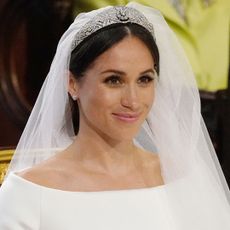 Meghan Markle and Her Makeup Artist Confirmed All Her Royal Wedding Beauty Products
Meghan Markle and Her Makeup Artist Confirmed All Her Royal Wedding Beauty ProductsAnd yes, you can shop them all here.
By Kayleigh Roberts Published
-
 Prince George Had a Six-Word Message for Prince William to Pass Along to a TV Star During a Recent Royal Engagement
Prince George Had a Six-Word Message for Prince William to Pass Along to a TV Star During a Recent Royal EngagementThe 11-year-old called the star of a popular U.K. series out.
By Kayleigh Roberts Published
-
 Chase Sui Wonders Channels ‘90s Nostalgia at 'The Studio' Premiere
Chase Sui Wonders Channels ‘90s Nostalgia at 'The Studio' PremiereAt 'The Studio' premiere, she channeled Gwyneth Paltrow’s '90s-era style with an archival Prada print once worn by the star.
By Lauren Tappan Published
-
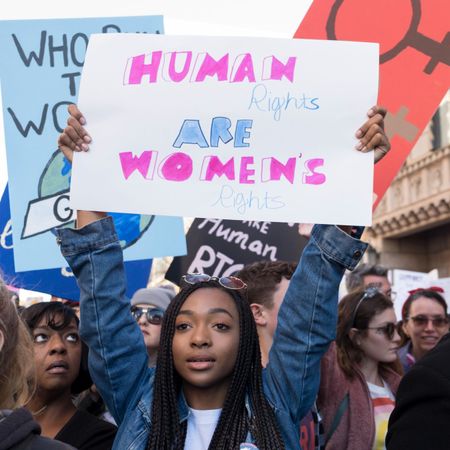 36 Ways Women Still Aren't Equal to Men
36 Ways Women Still Aren't Equal to MenFeatures It's just one of the many ways women still aren't equal to men.
By Brooke Knappenberger Last updated
-
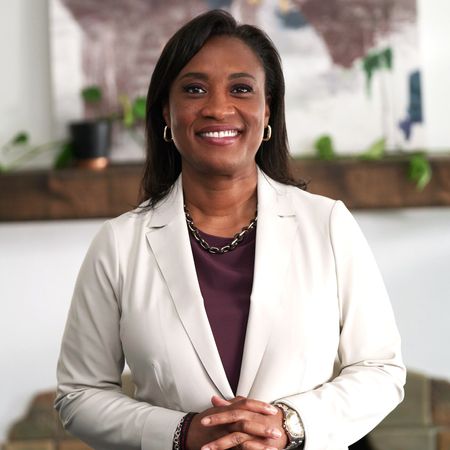 EMILY's List President Laphonza Butler Has Big Plans for the Organization
EMILY's List President Laphonza Butler Has Big Plans for the OrganizationUnder Butler's leadership, the largest resource for women in politics aims to expand Black political power and become more accessible for candidates across the nation.
By Rachel Epstein Published
-
 Want to Fight for Abortion Rights in Texas? Raise Your Voice to State Legislators
Want to Fight for Abortion Rights in Texas? Raise Your Voice to State LegislatorsEmily Cain, executive director of EMILY's List and and former Minority Leader in Maine, says that to stop the assault on reproductive rights, we need to start demanding more from our state legislatures.
By Emily Cain Published
-
 Your Abortion Questions, Answered
Your Abortion Questions, AnsweredHere, MC debunks common abortion myths you may be increasingly hearing since Texas' near-total abortion ban went into effect.
By Rachel Epstein Published
-
 The Future of Afghan Women and Girls Depends on What We Do Next
The Future of Afghan Women and Girls Depends on What We Do NextBetween the U.S. occupation and the Taliban, supporting resettlement for Afghan women and vulnerable individuals is long overdue.
By Rona Akbari Published
-
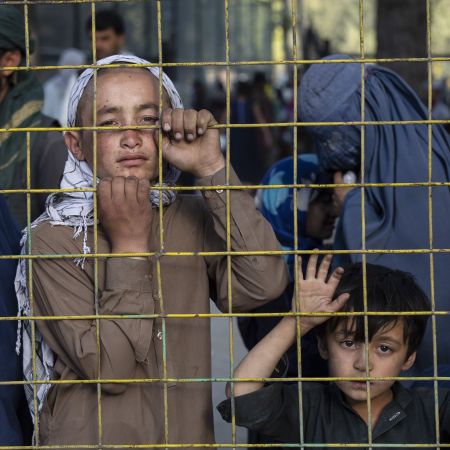 How to Help Afghanistan Refugees and Those Who Need Aid
How to Help Afghanistan Refugees and Those Who Need AidHow To With the situation rapidly evolving, organizations are desperate for help.
By Katherine J. Igoe Published
-
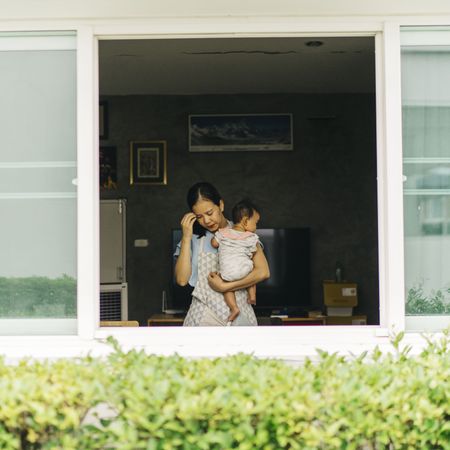 It’s Time to Give Domestic Workers the Protections They Deserve
It’s Time to Give Domestic Workers the Protections They DeserveThe National Domestic Workers Bill of Rights, reintroduced today, would establish a new set of standards for the people who work in our homes and take a vital step towards racial and gender equity.
By Ai-jen Poo Published
-
 The Biden Administration Announced It Will Remove the Hyde Amendment
The Biden Administration Announced It Will Remove the Hyde AmendmentThe pledge was just one of many gender equity commitments made by the administration, including the creation of the first U.S. National Action Plan on Gender-Based Violence.
By Megan DiTrolio Published